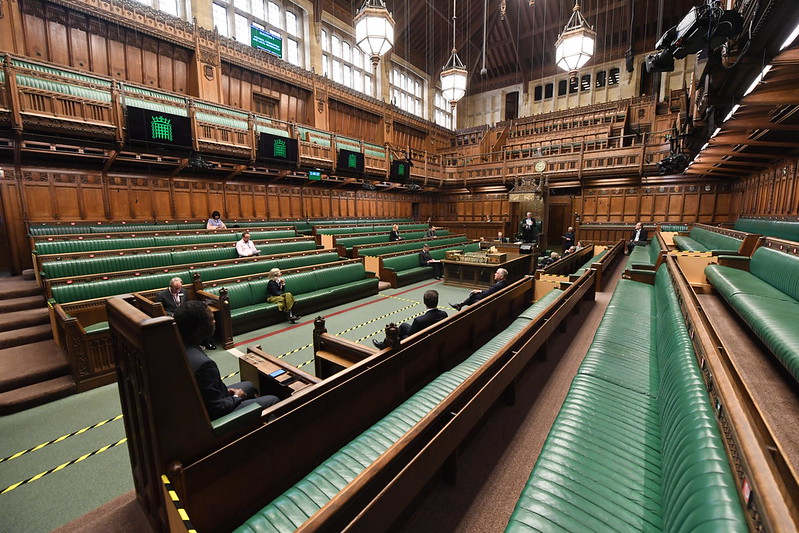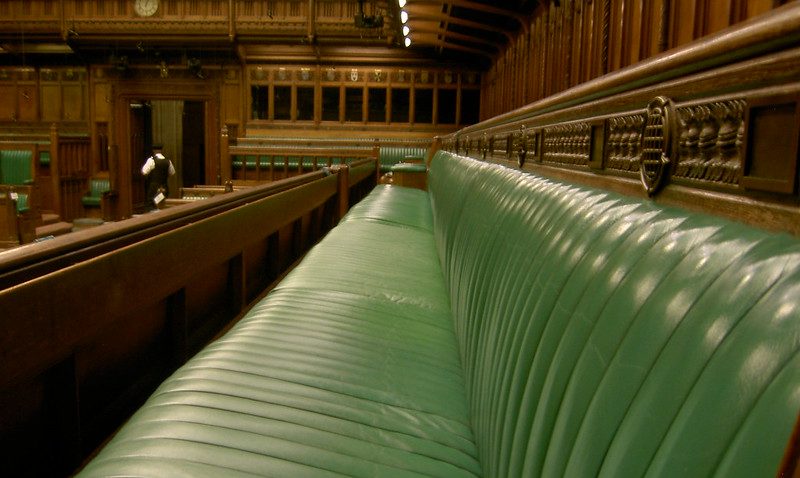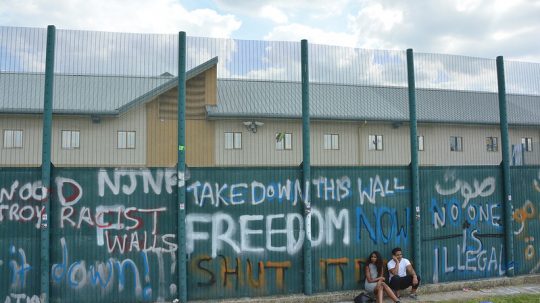The government has amended certain sections of the Illegal Migration Bill after draft legislation was sent back from the House of Lords with 20 defeats. Theresa May, the former prime minister, warned peers that the bill will force more people into slavery, if it becomes an act.
Ministers in the House of Commons debated and scrapped ‘key pillars’ of the bill, which is at the centre of the prime minister Rishi Sunak’s pledge to stop small boats crossing the English Channel. Meanwhile, Rishi Sunak has been speaking in support of the government’s handling of migration at a two-day meeting of the NATO military alliance.
The bill, which was previously considered in the Commons on 27 and 28 March, reportedly split Conservative MPs over the hardening stance it represented regarding people arriving in the UK via small boats across the Channel.
The proposed legislation intends to remove anyone who arrives in the UK in this way and place a lifetime ban on them returning to the country. The bill would also place a legal duty on the government to detain and remove migrants arriving illegally, either to Rwanda or another “safe” third country.
Changes to the bill:
- The potential removal of migrants crossing the Channel will not apply retrospectively; rather, it will only apply if the bill receives royal assent and becomes an act.
- A primary change means that a first-tier tribunal can grant immigration bail after eight days to unaccompanied children detained for the purpose of removal, as opposed to the current 28 days.
- The government will keep the current rules on the detention of pregnant women, meaning they can only be detained for a maximum of 72 hours – though this can be extended to seven days on the authorisation of a minister.
Theresa May, speaking to the House of Commons, stated: “This bill ties the hands of the police and it undoes the good work of the modern slavery act. [The] bill will consign more people to slavery.”
Meanwhile, campaigning group Refugee Action took to social media to highlight that, despite the claims that the bill complies with international law, over 60 organisations disagree, as does the United Nations High Commissioner for Refugees (UNHCR).
⚠️Today, the #IllegalMigrationBill returns to the House of Commons.
The Home Secretary claims it complies with international law. UNHCR, Peers, and NGOs prove otherwise.
Here are just 5 ways this Bill violates international law.
📣Share this video | Tag your MP pic.twitter.com/NzzmTl9uhr
— Refugee Action (@RefugeeAction) July 11, 2023
Does the ‘Refugee Ban Bill’ ban refugees?
The bill, dubbed the ‘Refugee Ban Bill’ on social media, has received criticism from NGOs and civil liberty groups. Those opposing the bill have made the case that not only would it effectively prevent people from making asylum claims in the UK but it would also ban them from doing so in the future.
Apart from refugees from certain countries, there are currently no legal routes for people seeking asylum. In addition, the Nationality and Borders Act 2022 brought a policy into legislation that requires anyone submitting an asylum claim to already be in the UK.
In terms of those seeking asylum from Ukraine, there are currently two visa routes by which people can make a claim: one is based on having family in the UK, the other on having someone in the UK willing to provide a home.
There is also a route for people fleeing Afghanistan, if they have previously worked for the UK government (including the British Army) and can show they are at serious risk in Afghanistan because of this.
Otherwise, there are no visa schemes for anyone fleeing persecution to apply to receive asylum in the UK – no matter what family or other connection the person may have here.
Questions regarding the legality of the bill remain
Suella Braverman, the home secretary, had previously said she cannot confirm that the bill is compatible with the European Convention on Human Rights – but that the government intended to proceed with it anyway.
The legalities of the proposed Rwanda migration partnership (Rwanda deal) had similarly been questioned in recent months. On 29 June, the Rwanda deal was found to be unlawful in a high court appeal, and the legal battle is set to continue as the government moves to appeal the decision before the supreme court.





